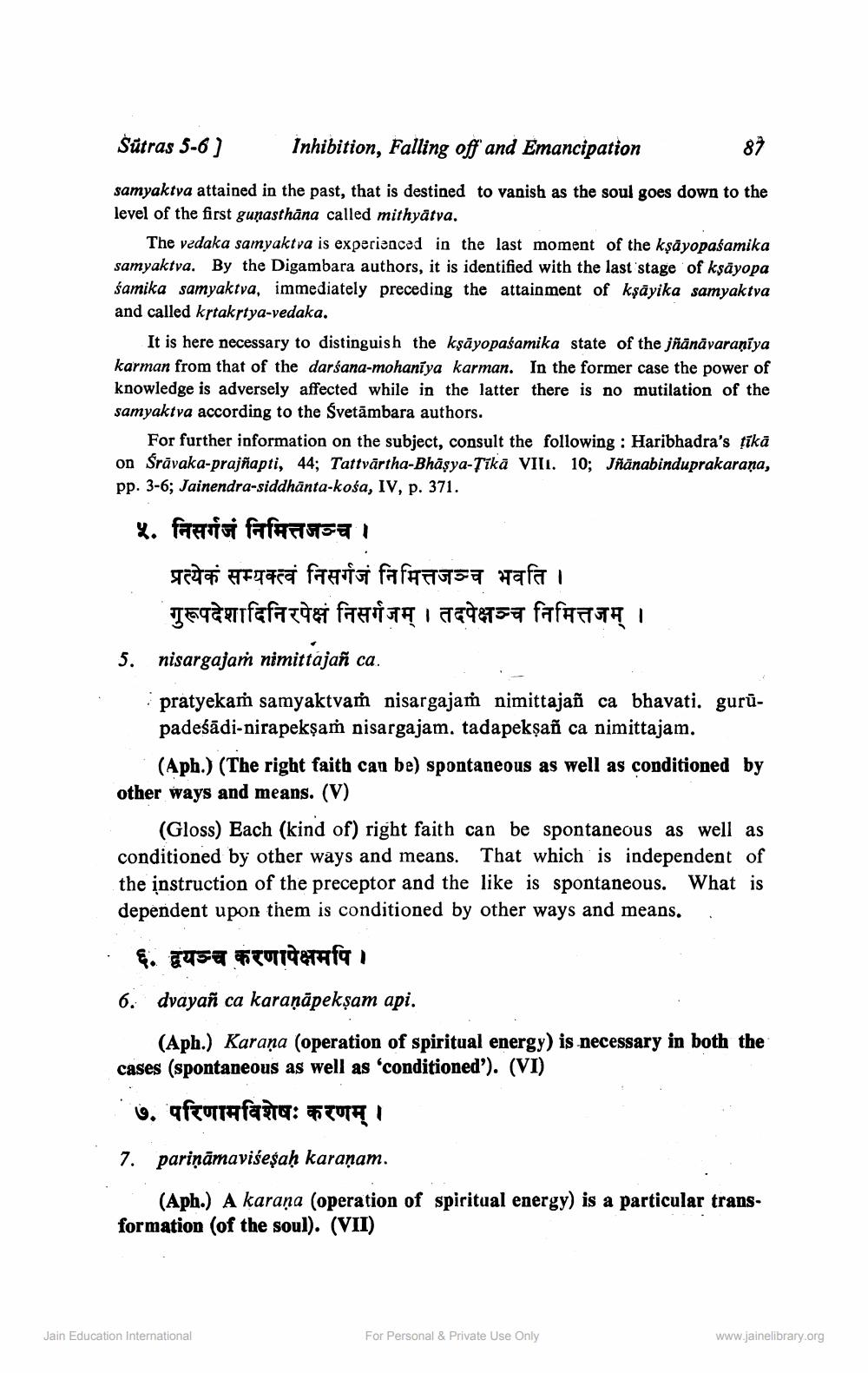________________
Sūtras 5-6]
Înhibition, Falling off and Emancipation
87
samyaktva attained in the past, that is destined to vanish as the soul goes down to the level of the first guṇasthāna called mithyätva.
The vedaka samyaktva is experienced in the last moment of the kşayopaśamika samyaktva. By the Digambara authors, it is identified with the last stage of kşayopa śamika samyaktva, immediately preceding the attainment of ksāyika samyaktva and called krtakrtya-vedaka.
It is here necessary to distinguish the kṣāyopaśamika state of the jñänävaraniya karman from that of the darśana-mohanīya karman. In the former case the power of knowledge is adversely affected while in the latter there is no mutilation of the samyaktva according to the Svetāmbara authors.
For further information on the subject, consult the following: Haribhadra's tīkā on Srāvaka-prajñapti, 44; Tattvārtha-Bhāşya-Tīkā VIII. 10; Jñanabinduprakarana, pp. 3-6; Jainendra-siddhānta-kośa, IV, p. 371.
५. निसर्गजं निमित्तजञ्च ।
प्रत्येकं सम्यक्त्वं निसर्ग निमित्तजञ्च भवति । गुरूपदेशादिनिरपेक्षं निसर्गजम् । तदपेक्षञ्च निमित्तजम् ।
5.
nisargajam nimittajan ca.
pratyekam samyaktvam nisargajam nimittajañ ca bhavati. gurū. padeśādi-nirapeksaṁ nisargajam, tadapekşañ ca nimittajam,
(Aph.) (The right faith can be) spontaneous as well as conditioned by other ways and means. (V)
(Gloss) Each (kind of) right faith can be spontaneous as well as conditioned by other ways and means. That which is independent of the instruction of the preceptor and the like is spontaneous. What is dependent upon them is conditioned by other ways and means.
· f. 1952 STUTTGART 1 6. dvayan ca karaṇāpekşam api.
(Aph.) Karana (operation of spiritual energy) is necessary in both the cases (spontaneous as well as "conditioned'). (VI)
U gorafata: #TUTĘ I
7. pariņāmaviseśaḥ karaṇam.
(Aph.) A karana (operation of spiritual energy) is a particular transformation (of the soul). (VII)
Jain Education International
For Personal & Private Use Only
www.jainelibrary.org




